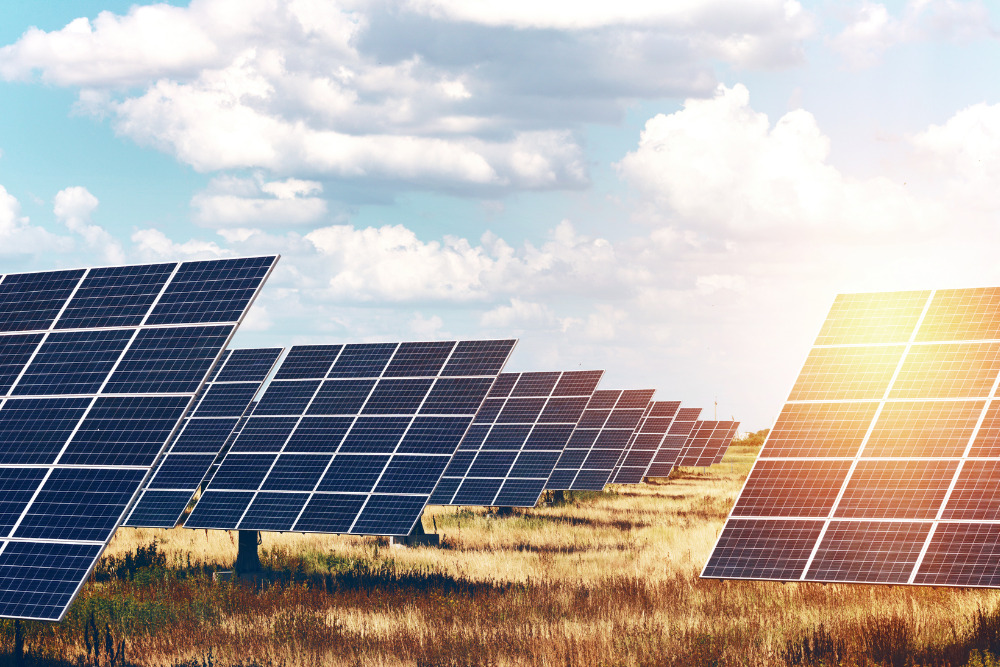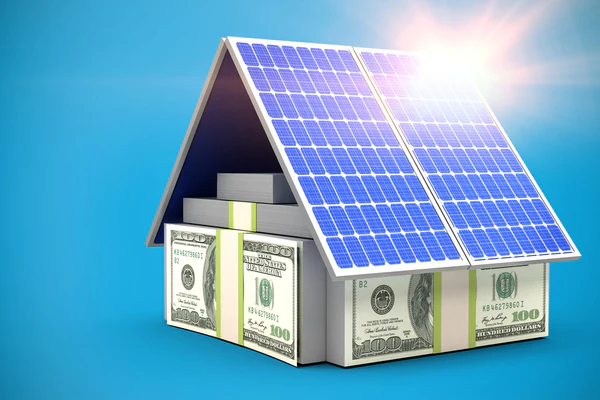Switch to Affordable Clean Energy with Simply Solar Illinois
Switch to Affordable Clean Energy with Simply Solar Illinois
Blog Article
Solar Power 101: A Beginner's Guide to Sustainable Power Solutions
As the world significantly moves in the direction of lasting energy services, comprehending the basics of solar power ends up being crucial for both individuals and businesses. This guide provides an extensive review of solar power, detailing the various systems available and the systems behind their operation. By discovering the benefits of solar innovation, along with the economic motivations and setup processes, one can obtain a clearer perspective on exactly how to effectively integrate this sustainable source into their energy method. The trip towards embracing solar energy welcomes more exam of the obstacles and factors to consider that come with it.
Recognizing Solar Power
At its core, understanding solar power entails realizing the essential principles of how sunlight can be converted right into functional electricity. Solar power is obtained from the sunlight's radiation, which can be utilized via various modern technologies. The primary system for this conversion is the photovoltaic or pv result. This phenomenon occurs when sunlight strikes semiconductor materials, commonly silicon-based, within solar batteries. The energy from the sunshine thrills electrons in the semiconductor, allowing them to stream openly and create straight present (DC) electricity.

Recognizing solar energy also includes identifying its ecological advantages. By utilizing sunshine, we can alleviate greenhouse gas emissions and decrease air pollution, adding to a more lasting future. The advancements in innovation and effectiveness of solar systems proceed to enhance their feasibility, making solar power a progressively attractive option for international energy needs.
Sorts Of Solar Energy Systems
Numerous kinds of solar power systems are commonly utilized to harness solar energy for electrical power generation. The key classifications include photovoltaic or pv (PV) systems, concentrating solar energy (CSP) systems, and solar thermal systems.
Photovoltaic systems make use of solar panels made up of silicon cells that transform sunlight directly right into power. These systems are flexible and can be mounted on roofs, ground places, or incorporated into structure materials.
Concentrating Solar energy systems, on the other hand, employ mirrors or lenses to focus sunlight onto a tiny location, producing warm that drives a steam turbine to create power - Simply Solar Illinois. CSP systems are usually released in large-scale power plants and call for direct sunlight, making them less suitable for cloudy areas

Each kind of solar energy system has its one-of-a-kind characteristics, applications, and suitability depending on geographic location, energy needs, and budget plan, making it necessary to assess alternatives based upon particular situations. - Simply Solar Illinois

Benefits of Solar Power
Using solar energy via various systems not only gives a lasting method to produce electrical power but also uses a multitude of advantages. One of the most substantial advantages is the decrease in greenhouse gas exhausts, adding to a cleaner setting and combating climate modification. Solar power is eco-friendly, meaning it is infinite and readily available as long as the sun beams, unlike nonrenewable fuel sources, which are finite and diminishing.
Moreover, solar power can cause considerable expense financial savings over time. Property owners and companies can minimize their electrical energy bills dramatically, and in several instances, they might earn credit scores for excess power created with net metering. Furthermore, the solar market develops tasks, from manufacturing to setup, promoting local economic climates.
One more compelling benefit is energy self-reliance. By generating their very own electrical energy, individuals and communities can decrease reliance on exterior power resources, improving resilience against fluctuating energy prices and supply disruptions. Furthermore, solar power systems require minimal upkeep, making them a convenient alternative for lasting energy generation.
Setup Process Overview
The installment process for solar power systems generally entails a number of key actions that make certain efficient assimilation into a property. A comprehensive site evaluation is performed to review the roofing system's alignment, shielding, and structural integrity, which are essential to maximizing solar panel efficiency. Following this assessment, the layout phase begins, helpful site where a tailored solar power system is set up based on the home owner's energy requirements and preferences.
Once the style is wrapped up, the essential permits and authorizations are obtained from local authorities, making certain compliance with policies. The real installment entails installing the pop over to this web-site solar panels on the roof or ground, attaching them to an inverter, and integrating the system with the home's electric arrangement. This phase may additionally entail setting up battery storage systems, relying on the design.
With the setup full, the solar energy system can start creating eco-friendly power, contributing to sustainability and reducing utility expenses. This organized technique guarantees that solar systems are both effective and trustworthy, optimizing their long-term advantages.
Financial Motivations and Savings
Exploring the financial incentives and cost savings associated with solar energy systems can dramatically improve the appeal of making the button to eco-friendly energy. One of the most notable incentives is the federal solar tax credit history, which enables house owners to deduct a percentage of their solar system installment prices from their federal tax obligations.
Along with tax obligation credit scores, many states offer refunds that can further reduce ahead of time expenses. Some energy companies additionally provide performance-based rewards, gratifying solar energy manufacturing with time. Funding options, such as solar lendings and leases, allow customers to set up systems with little to no down settlement, making solar power more easily accessible.

Lasting savings are one more crucial aspect. By creating their very own electrical power, homeowners can significantly minimize or even remove their regular monthly power expenses. Furthermore, planetary systems can enhance home worths, offering a solid return on financial investment. On the whole, the combination of motivations and financial savings makes solar power an economically eye-catching option for many households.
Verdict
In conclusion, solar power represents an important element of sustainable energy options, offering a pathway towards decreased carbon impacts and enhanced environmental defense. Eventually, the shift to solar power not only fosters environmental obligation yet also advertises economic cost savings and power freedom.
Report this page